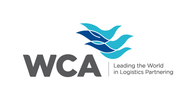

CB33u—Processing Additional Duties Imposed by Section 301 of the Trade Act of 1974
Subscriber price: $50.00, Non-subscriber price: $59.00
Estimated total study time: 3 hours 48 minutes
![]()
This course is for Customs Brokers and importers filing entries for products from China subject to additional duties under Section 301 of the Trade Act of 1974. It addresses practical operational issues such as the list of affected products, the applicable HTSUS Chapter 99 tariff numbers, the consequences of failure to add the additional tariff line item and duty when applicable, importer bond sufficiency and where to obtain additional information as further developments arise.
Section 301 Safeguards, Purpose and Regulations
This lesson explores the role and significance of Section 301 of the Trade Act of 1974 in U.S. trade policy. It delves into the historical context, legal framework, and practical applications of Section 301, highlighting its use in addressing unfair trade practices and enforcing U.S. rights under international trade agreements. Through case studies and real-world examples, students will gain a comprehensive understanding of how Section 301 functions and its impact on global trade dynamics.
(Estimated study time: 58 minutes)
- Introduction
- Background and History of Section 301
- Laws and Regulations of Section 301
- Investigation of Unfair Trade Practices of Section 301
- Section 301 Process Set Forth in Sections 302-306
Section 301 Entry Filing Using Chapter 99
This lesson provides a detailed examination of the Section 301 investigation process, focusing on the procedures, public involvement, and the implementation of additional duties on imports. Students will learn about the steps involved in initiating a Section 301 investigation, the role of public hearings and comments, and the subsequent actions taken by the U.S. Trade Representative (USTR) based on the findings. The lesson also covers the classification and application of additional duties, including specific cases and exceptions.
(Estimated study time: 1 hour 24 minutes)
- Introduction
- Consult any Filing Instructions, Chapter or Subchapter Notes
- 9903 U.S. Notes
- General Entry Filing Using Chapter 99
- Notification to the Public of Trade Legislation for Section 301
- Specific Tips for Entry Filing of Section 301 Goods
- Section 301 Duties Determined by Country and Date
- Duty Drawback on Section 301 Duties
- Trade Agreements and Preference Programs and Section 301
- HTSUS Chapter 98 and Section 301 Duties
- Foreign Trade Zone's and Section 301
- De Minimis Shipments and Section 301 Duties
- Exclusions and Section 301 Additional Duties
- Sets and Section 301 Duties
- Quotas do not Apply to Section 301
- ACE Reports for Section 301
General Tariff Classification, Post Entry and Other Considerations for Chapter 99
This lesson begins with detailed instructions on handling multiple HTSUS classifications on the same entry summary line when Chapter 98 or 99 is required. The rest of the lesson focuses on the procedures and best practices for handling U.S. Customs and Border Protection (CBP) rejects due to inaccurate classification or information in Chapter 99 of the Harmonized Tariff Schedule of the United States (HTSUS). It covers the common reject messages received by Automated Broker Interface (ABI) filers, the steps to correct and resubmit entries, and proactive measures to avoid such rejections. Additionally, the lesson addresses bond sufficiency considerations and customs broker billing practices for shipments subject to additional duties.
(Estimated study time: 1 hour 27 minutes)
- Introduction
- Reporting Multiple HTSUS classifications on the Same Entry Summary Line
- When Multiple Classifications on a Single Line Include Chapter 98 or 99
- Stacking of Certain Additional Duties
- GUIDANCE
- APPLICABILITY
- REPORTING
- EFFECTIVE DATE
- REFUNDS OF PREVIOUS DUTY PAYMENTS
- EXAMPLES
- CBP Rejects for Inaccurate Classification or Product Information in Chapter 99
- Post Entry for Goods in Chapter 99
- Bond Sufficiency for Products with Additional Duties
- Customs Broker Billing and Payment Considerations for Shipments with Additional Duty
- Proactive Recommendations When Clients May Be Affected by Temporary Import Legislation